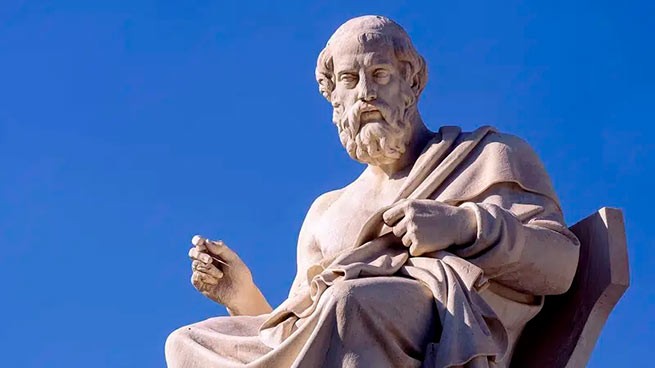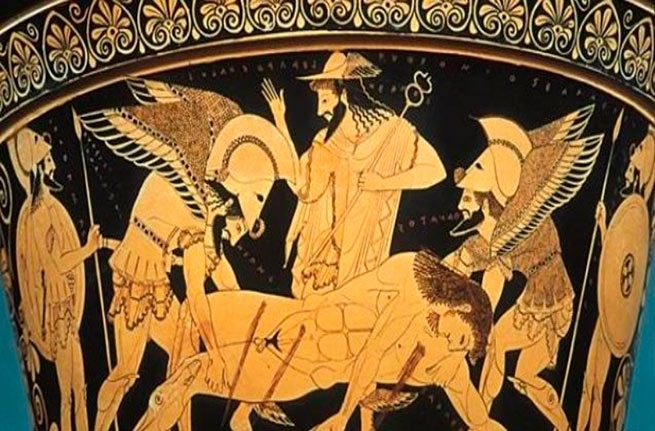The ancient Athenians, according to the laws of Solon, were obliged to take care of their elderly parents and even take care of their burial.
Any citizen who violated these obligations paid a fine and lost his civil rights, that is, he was considered “dishonest”, or expelled from the city. The Athenians and Greeks of ancient times believed that the gods generously bestow blessings on mortals and that, respecting immortal benefactors, they should use them to the last opportunity.
Otherwise, they would have offended the generous gods. Therefore, according to these ideas, they should appreciate, love and enjoy earthly life. They had to treat death with reverence, fear and sadness, so the ancient Greeks were afraid of the dead, who were considered “unclean” (defiled). Death is the finale, because few people in ancient times believed in the immortality of the soul.
Homer divides the soul (from the verb psycho > blow – breathe (από το ρήμα ψύχω > πνέω – αναπνέω)) into the main soul (life – breath – breath ( ζωή -ανάσα – πνοή)) and anger, which is our soul, as a carrier mental and spiritual qualities. According to Homer, the body is the person as such, which wears out after death. The soul after death becomes a pale, worthless shadow that wanders in Hades, and then disappears, disappears. Aristotle also has similar ideas, who claims that a person is a body and matter, a soul and a species.
According to Aristotle, the psyche occupies an intermediate position between man and God, is born and goes out with the body. Only the mind comes from outside (“tyraten” (“θύραθεν”)), it is “the highest part of the soul, preceding and main, aplomb and apathetic”, and is matter.
Soul Immortality
Defend the immortality of the soul Orphics, Pythagoreans and Platonists. Their theories are very similar to the later Christian theory of the soul. Common to all of them is the opinion that the soul is “an immaterial, indestructible and immortal substance”, “something invisible, incorporeal, incorruptible and divine”, and therefore immortal. While the body is “visible and complex, earthly and human”, it is therefore mortal and perhaps illusory (Plato and Phaedon).
Socrates in his last moments he feels that in his death he is cured of the disease (that is, the closure of the soul, inside the perishable (mortal) body). Therefore, to express his gratitude to the god Asclepius, he instructs Crito to sacrifice a rooster on his behalf. The same interpretation, according to which the body is a prison for the soul, is supported by the Orphics. Characteristically, they believe: “the soul temporarily leaves the body at the moment of sleep and forever at the moment of death.” They all also speak of justice, moral purity, and punishment or justification in the next world.
Epicurean point of view
The opposite of the previous one is the Epicurean view. Epicurus accepts the Platonic-Aristotelian division of the soul into horse (soul – anima (ψυχή – anima) and rational (mind – animus (νους – animus)). But he differs from others in that he considers both parts of the soul to be corruptible and material. He is based on atomic theory of Democritus, that is, he interprets the soul and mind as symptoms of the manifestation of matter. Epicurus, the soul consists of the smallest atoms scattered in the body, and dies with the body. His view of death is interesting:
“… So, the most terrible of all evils – death – is nothing to us. Simply because while we are alive, he will not exist, while when he appears, we will not exist. Therefore, death has nothing to do with either alive, nor with the dead, because while the living are alive, she is not, and the dead will not be alive when she appears … “(Epicurus, Epistle to Menikeyu,” On Happiness “) ς).
Ancient Greek religion allowed complete freedom of thought and expression, had beliefs with a purely spiritual content and high moral values. For example, on the Champs Elysees, mortals reign, distinguished by their virtues after death. On the contrary, the gloomy palaces of Hades are inhabited by dead mortals, those who did not use their qualities and the potential that the gods endowed them with in life.
Among them is the one who was taken alive, as Homer mentions. That is, one who has passed through ephemeral life without being perceived, without using the gifts of the gods. At the bottom of Hades, in Tartarus, are those who committed serious crimes. Tantalus, Sisyphus, the daughters of Danae are punished by the gods and subjected to endless torment.







More Stories
57 years ago, a junta of black colonels came to power in Greece.
On April 10, 1821, the Turks hanged Patriarch Gregory V at the Phanar gates
How did married couples divorce in Ancient Greece? Difference with modern divorces